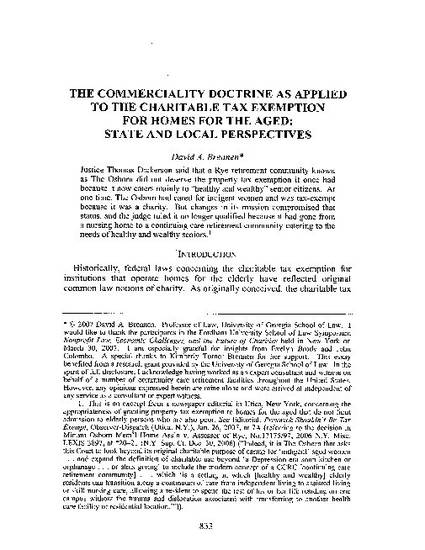
This essay examines the question of how state and local government officials should consider federal tax law principles, like the commerciality doctrine, when they challenge state and local property tax exemptions that rely, at least in part, on tax-exempt charitable status for federal income tax purposes. In particular, this essay uses the example of continuing care retirement communities to consider tax-exempt law’s commerciality doctrine in an attempt to discern distinctions between “homes for the aged” that are “charitable,” and thus entitled to exemption, and those that are too commercial, and thus not entitled to exemption. In fact, one might say that this issue of the tax exemption eligibility of continuing care retirement communities is a version of John Colombo’s quandary about the commerciality doctrine in general—”when . . . commercial activity will be considered in furtherance of an exempt purpose as opposed to simply primarily an unrelated business.” Ideally, these distinctions between exempt and nonexempt homes for the aged should be helpful to state and local tax officials who, in the face of shrinking revenues and increasing expenses, seek to deny tax-exempt status to “homes for the aged” that are charitable primarily because they look commercialized and do not necessarily serve the poor.

Fordham Law Review, Vol. 76, No. 2 (November 2007), pp. 833-856